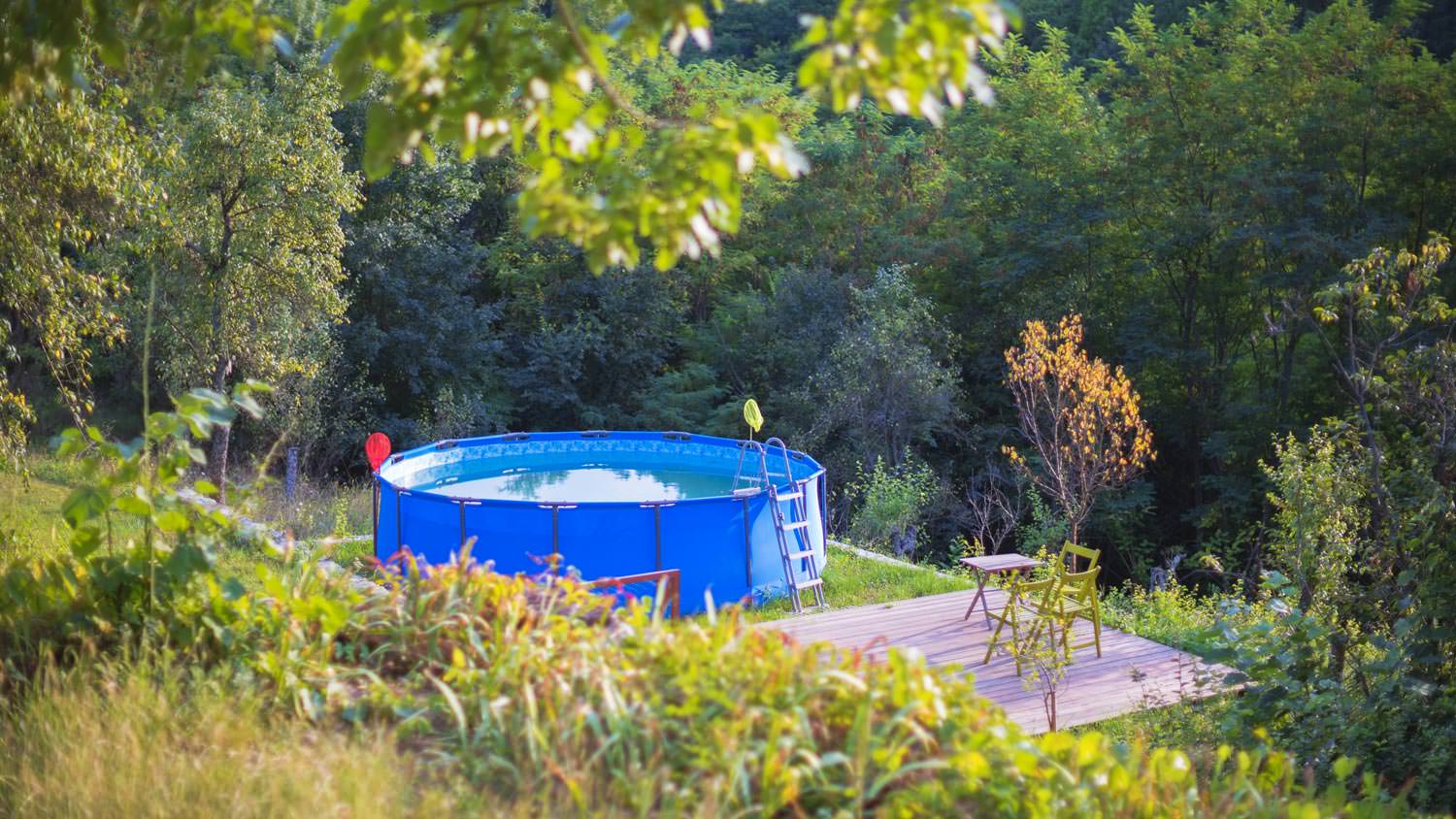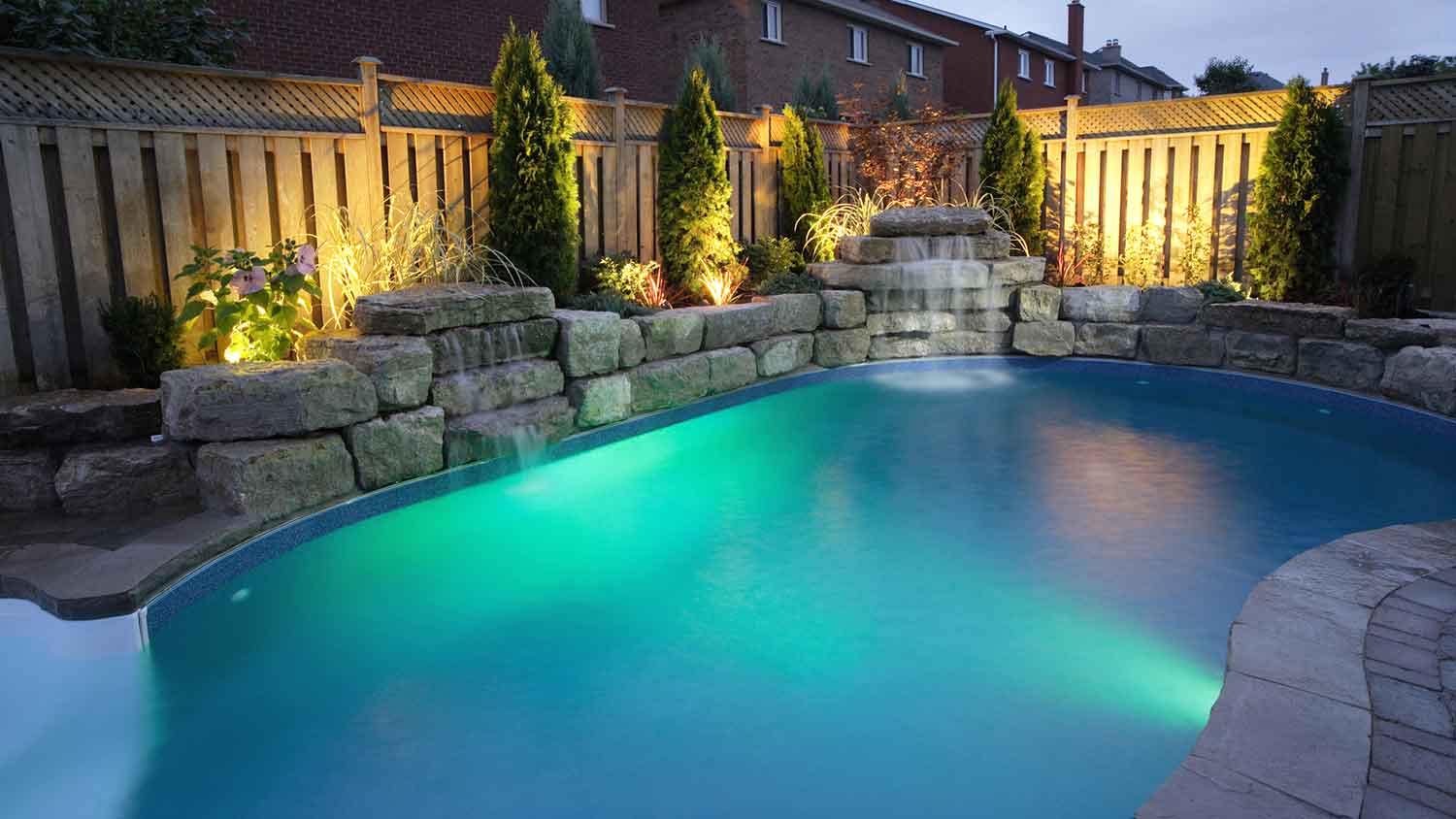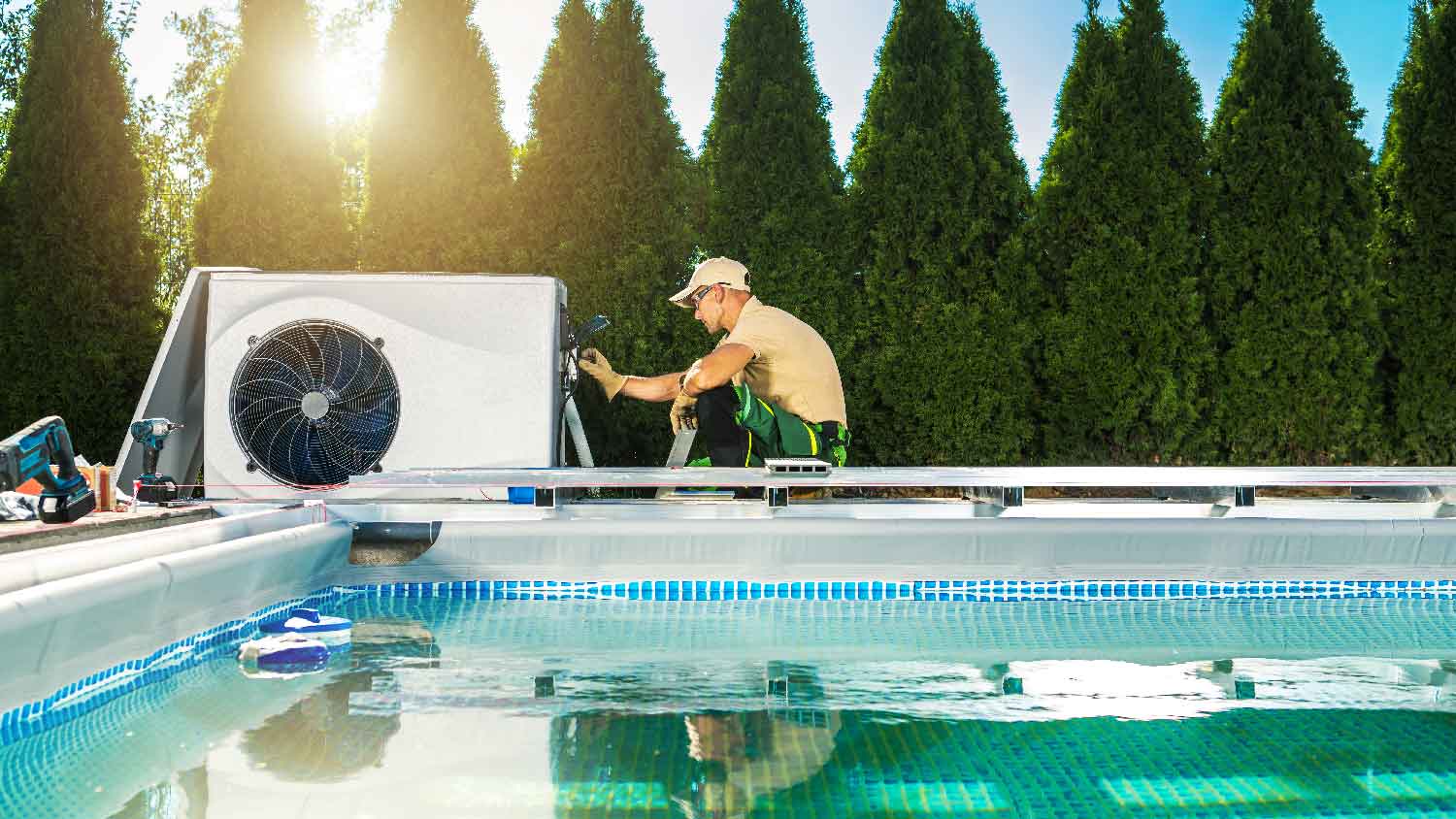
Pool resurfacing costs depend on factors such as pool size, material, refilling, whether your pool is above or below ground, labor, and more.
A pool heater costs an average of $3,000


Installing a pool heater costs between $1,830 and $4,217 on average, or $3,000 in total.
Key cost factors include pool size, heater type, and labor complexity.
Additional expenses may arise for utility hookups and electrical or plumbing work.
Installing a pool heater extends your swimming season and enhances home value.
Investing in professional pool heater installation ensures safety and optimal performance.
This article was updated using automation technology and thoroughly reviewed for accuracy by HomeAdvisor Editor Ryan Noonan.
On average, installing a pool heater costs between $1,830 and $4,217, for an average total of $3,000. Depending on your situation, you may pay as little as $300 or as much as $5,750 on the high end. The final price depends on your location, pool size, and the quality of the unit you choose.
Building the cost of professional installation into your project budget lets you heat the water reliably season after season. Seasonal or annual checks help prevent surprises and keep your heater running smoothly. A well-maintained system provides long-term savings and comfort, ensuring you make the most of your investment.
Installing a pool heater involves several key factors, such as the size and volume of your pool, the type of heater, your local climate, and utility hookups.
Large pools require more powerful heating units, which translates to higher upfront costs for both the heater and its installation. Pool heater capacity is measured in British Thermal Units (BTUs), with higher numbers indicating a more powerful heating capacity.
On average, 50,000 BTUs can efficiently heat 5,000 to 10,000 gallons of water. Pools in colder climates may require more powerful heaters.
Choosing the right size unit matters. An undersized heater will run longer and still fail to reach the set temperature, while an oversized model can waste fuel or electricity.
| Pool Volume (Gallons) | Average BTUs Needed (Gas Heater) | Average Cost (All-In) |
|---|---|---|
| 10,000 | 40,000–60,000 | $1,000–$2,500 |
| 15,000 | 60,000–90,000 | $1,500–$3,500 |
| 20,000 | 80,000–120,000 | $2,000–$3,500 |
| 25,000 | 100,000–150,000 | $2,500–$4,000 |
| 30,000 | 120,000–180,000 | $4,000+ |
Installing utility lines ranges from $250 to $2,100, depending on the type. If you’re installing a pool heater for the first time, you may need to run utility lines between the heater and your home’s energy source. Potential costs include:
Gas line installation: $500–$2,000
Electrical circuits: $250–$2,100–$1,900
Access to utilities also affects cost. Natural-gas lines are common in cities and suburbs, but rural properties may need a propane tank or an electrical upgrade.
Local climate also guides the heater choice. Warm, sunny regions often benefit from solar models that run on free sunlight. Heat pumps are most efficient in most climates but perform best in mild conditions.
Gas and propane heaters offer the best heating performance in colder climates or winter conditions. Unlike heat pumps, which use ambient temperature to extract and transfer heat, gas and propane heaters use combustion to generate heat and warm the water directly.
Hiring a local pool heater installer $500 to $1,000 for a standard job. Gas and propane models can take longer to set up, while heat-pump and electric units are quicker to install. Replacing an old heater adds $25 to $50 for removal and disposal. Standard pool heater installations run $500 to $1,000 in labor. Solar pool heaters can take more time to set up, so labor alone can reach $500 to $2,000.
Specialized contractors install pool heaters, but gas line installation, electrical circuit installation, extensive plumbing, or other complex tasks may require hiring or subcontracting additional professionals. For example, qualified electricians cost $50 to $100 per hour, whereas plumbers charge $45 to $200 per hour.
Installing a pool heater may require certain permits, especially for significant modifications to plumbing, electrical, or gas systems. Permit requirements and fees vary depending on the location and the installation specifics, but range from $100 to $500 on average.
Several add-ons can enhance your pool heater’s efficiency and performance. Although they add to your upfront expenses, these extra features may translate to long-term cost savings. Consider these add-ons:
Pool cover: Ranging from $650 to $2,200, pool covers minimize heat loss and reduce heating costs by up to 90%.
Solar blankets: Similar to pool covers, solar blankets help retain pool heat but with solar energy. They cost between $50 and $500.
Pool enclosure: At $5,000 to $14,000, mesh or glass pool enclosures are a significant upgrade, but they can also trap heat in your pool.
The type of pool heater has the biggest influence on total installation costs. Pool heater types vary in installation complexity and potential additional expenses, such as gas line installation, which determine the total cost.
| Heater Type | Average Cost Range |
|---|---|
| Natural gas/propane | $1,500–$6,000 |
| Electric resistance | $1,000–$6,000 |
| Solar | $2,500–$9,500 |
| Heat pump | $2,500–$7,500 |
Propane or gas pool heater installation costs between $1,500 and $6,000, including materials and labor. Higher costs reflect installing gas lines for jobs without existing systems. For areas without access to natural gas, factor in the cost of propane tanks and ongoing refills.
Propane and gas pool heaters may have higher upfront costs from additional infrastructure, but they provide the fastest heating. They’re more reliable in cold temperatures compared to other heater types.
Electric resistance heaters cost $1,000 to $6,000. Electric heaters are generally easier and faster to install compared to gas systems, although some homes may require rewiring or other electrical upgrades to accommodate the heater. They’re low maintenance but may be less reliable or effective in cold climates.
Solar pool heaters cost between $2,500 and $9,500. The upfront costs of solar panels, system components, and specialized labor can be relatively high, but solar pool heaters may offer significant long-term savings.
Relying entirely on the sun for energy, solar pool heaters have minimal operating costs once installed. Modern solar panels perform best in sunny areas but can still convert and store energy in cloudy conditions, although with suboptimal efficiency. High-quality systems can last 20 to 30 years or more with proper maintenance.
Pool heat pumps cost $2,500 to $7,500. Heat pumps extract heat from the air to warm the water. This process consumes less electricity than electrical resistance heating and is more cost-effective than gas heating, offsetting the higher upfront heat pump installation cost. Heat pumps may require a dedicated electrical circuit, which can increase total costs.
Pool heater installation can be expensive, but the right planning can streamline costs. Try these budgeting tips:
Get written estimates from at least three pool-heater pros to compare labor, materials, and permit costs.
Match the heater type and size to your pool’s volume, how often you swim, and your local climate.
Ask about off-season pool heater discounts or promotions that can trim labor charges.
Pick a model with a solid manufacturer’s warranty to limit future repair bills.
See if your pool heating contractor offers bundle pricing when you add pumps, filters, or lighting to the same job.
No place is more important than your home, which is why HomeAdvisor connects homeowners with local pros to transform their houses into homes they love. To help homeowners prepare for their next project, HomeAdvisor provides readers with accurate cost data and follows strict editorial guidelines. After a project is complete, we survey real customers about the costs to develop the pricing data you see, so you can make the best decisions for you and your home. We pair this data with research from reputable sources, including the U.S. Bureau of Labor Statistics, academic journals, market studies, and interviews with industry experts—all to ensure our prices reflect real-world projects.
From average costs to expert advice, get all the answers you need to get your job done.

Pool resurfacing costs depend on factors such as pool size, material, refilling, whether your pool is above or below ground, labor, and more.

It’s time to kick back and cool down for the summer. If you’re ready to make a splash, check out how much an in-ground pool costs with this guide.

Who installs above ground pools? Learn when to hire a pool installer vs. landscaper, what to expect, and the typical cost range.

Not sure who to call to fix a pool light? Learn why a pool repair service is best, what electricians can do, and what replacement costs.

Need to know who to call to fix a pool heater? See why a pool electrician is best for safe, code‑compliant pool heater repair—find a pro today.

Wondering who to hire to remodel a pool? Learn when to call a pool remodeling company vs. a pool installer, plus the steps pros take to transform your pool.